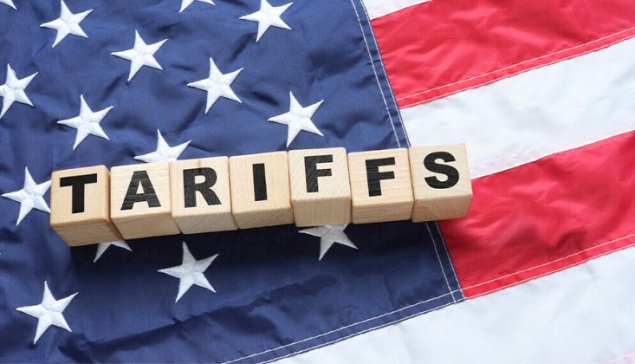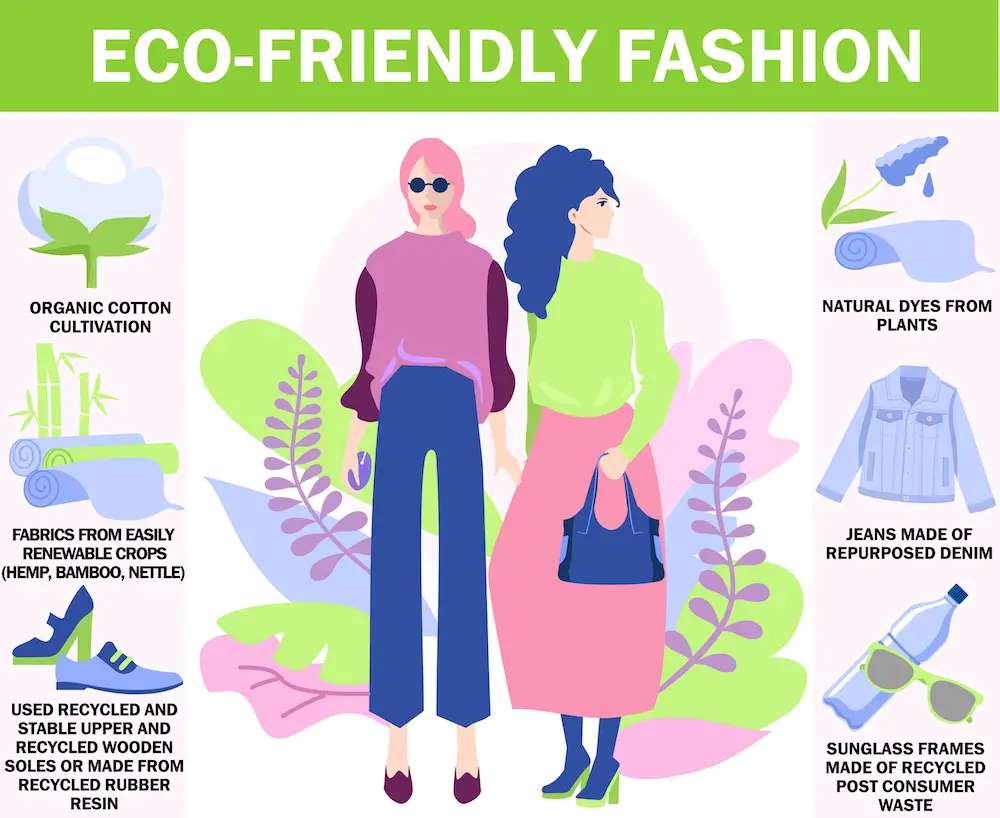A new survey conducted by Source, Europe’s leading responsible sourcing shows for fashion, home, gift, and garden, has unveiled key insights into the evolving sourcing practices of UK retailers and brands. The findings, delivered in The State of Sourcing Report - Sourcing and Sustainability in 2025, in partnership with retail trend consultancy Insider Trends, highlights significant advancements in global sourcing while revealing a fragmented and often hesitant approach to sustainability.
As retailers navigate an increasingly complex global landscape, sourcing and sustainability have become pivotal to their strategies. A new survey of UK brands and retailers, spanning small businesses to large enterprises, uncovers the realities behind sourcing practices and sustainability priorities in 2025. The findings offer a detailed look at where products are sourced, why these regions are chosen, how sustainability goals are shaping business decisions in the next 12-18 months, and what's impacting these changes.
The survey underscores the complexity of sourcing decisions. While some retailers embrace global markets, others remain rooted in their local regions due to cost, capacity, or strategic priorities. For those considering international sourcing, there is no one-size-fits-all solution, as every business must navigate unique challenges and opportunities.
Global Sourcing: A Critical Component of Retail Strategy
Retailers of all sizes are increasingly embracing international sourcing to meet the demands of a competitive market. The survey revealed:
84% of businesses with over 50 employees and 71% of smaller businesses (0-50 employees) source internationally, indicating that global sourcing is not exclusive to larger enterprises.
Key sourcing regions include:
China (48.8%): The top choice, reflecting its established production capabilities.
UK (41.6%): Demonstrating the continued relevance of local sourcing.
India (36.8%) and Western Europe (32.8%): Competitive options for diverse needs.
For larger businesses, regions like Southeast Asia and Turkey also emerge as significant players, illustrating a broader global footprint.
Who Owns Sustainability?
The survey highlights the lack of a unified approach to sustainability within businesses:
27.22% of respondents have a dedicated sustainability department with a head of sustainability setting targets and policies.
27.8% manage sustainability as part of another team - a practice most common among small businesses (31.06%) with limited resources.
For larger companies, a dedicated sustainability department is more prevalent (35.14%), while 21.62% have a head of sustainability or ESG leader coordinating cross-functionally with visible executive support. This structured approach reflects the resources and expectations placed on larger retailers.
Smaller businesses demonstrate a surprising commitment: over 50% have some form of dedicated sustainability leadership, showing their determination to address environmental issues despite limited capacity.
Why Retailers Choose Their Sources
The survey reveals nuanced decision-making behind sourcing:
Cost of Production: The leading factor for 45.6% of all respondents, highlighting the importance of cost efficiency.
Innovation: Exploration of new product categories ranks high, especially among large companies (35.48%).
Derisking Operations: A key focus for 32.26% of larger businesses, reflecting lessons learned from global supply chain disruptions during the pandemic.
Smaller businesses, on the other hand, prioritise sustainability more (29.79%) than their larger counterparts (19.35%), reflecting the growing pressure from consumers to offer eco-friendly alternatives.
Unique Challenges for Small Businesses
Respondents who selected “other” reasons for not sourcing internationally (15.91%) were predominantly small businesses. Comments revealed that many choose to stay local, citing preferences for UK-based goods, limited capacity, and financial constraints.
Sustainability Efforts Stalling Amid Complexity and Uncertainty
Despite consumer demand and regulatory pressure, sustainability efforts across the industry appear inconsistent:
69.23% of all businesses reported moving forward on sustainability in the past year. Among larger businesses, this figure rises to 78.38%, reflecting greater resources and pressure to act.
Key barriers include limited resources, competing priorities, and fear of reputational risks associated with greenwashing.
One respondent commented, “We are a small team, and sustainability just isn’t something we have the time or headspace to tackle yet.”
Key drivers of progress include:
Consumer Pressure: Reported by 11.61% of respondents across sizes.
Clear Strategy and Goals: A structured approach was cited by 10.71%, with progress measurement playing a role for 14.29%.
Authentic Leadership: Small businesses outpaced larger ones in reporting top-level support (28.57% vs. 21.43%), possibly due to closer internal structures.
Interestingly, smaller businesses are equally committed to setting clear targets linked to Net Zero (3.57%) compared to larger ones (3.93%). Additionally, the only B-Corp in the survey was a micro-business with 0-10 employees, highlighting the leadership potential of small enterprises in sustainability.
Barriers to Progress
Despite strides, challenges persist. For businesses that have not advanced in sustainability, the reasons vary by size:
Small Businesses: Lack of consumer pressure (50%), competing priorities (32.14%), and the sheer scale of the task (42.86%) were top concerns.
Large Businesses: The absence of clear strategies or goals (75%) was the most significant barrier, followed by competing priorities and consumer pressure (both 50%).
Authentic leadership was also noted as a gap in large companies, with half citing it as a challenge.
Sustainability Funding: A Divided Industry
When it comes to sustainability investment over the next 12-18 months, the industry is nearly evenly split:
53.62% of respondents plan to increase funding.
46.38% have no plans to boost their budgets.
Larger businesses are twice as likely to increase investment compared to those holding steady, with over 12% planning to double their sustainability spending.
Smaller businesses that are not investing cite confidence in their existing efforts (54.9%), lack of financial justification (17.65%), and competing priorities (11.76%). For large businesses, sustainability being deprioritised (36.36%) and investment competition (36.36%) are the key reasons.
Individual Approaches Hamper Industry Progress
The survey highlights the inefficiency of retailers addressing sustainability in isolation. With many businesses developing separate solutions, the sector struggles to scale innovations such as sustainable materials. As one respondent noted, “The development of bio-based synthetic materials is slow and expensive. The sector needs legislation to kickstart this process.”
Retailers must move toward collaboration - both within and across industries - to share resources, streamline efforts, and foster meaningful change. This shift is particularly urgent as upcoming regulations, such as the UK’s Digital Markets, Competition and Consumers Act, introduce stricter penalties for greenwashing, potentially deterring businesses from setting bold sustainability goals. Taking effect in April 2025, this legislation will empower the Competition and Markets Authority (CMA) to enforce penalties of up to 10% of global turnover for misleading environmental claims.
While intended to protect consumers from greenwashing, the regulation may inadvertently discourage retailers from making public sustainability commitments. According to a survey by DLA Piper, 52% of companies are already scaling back their sustainability targets to minimise risks.
Call for Clearer Guidance and Support
Retailers are calling for practical, industry-wide solutions, including:
Financial incentives to offset the costs of adopting sustainable practices.
Simplified and consistent regulations to support compliance and transparency.
Collaborative partnerships to drive innovation and scale sustainable alternatives.
Encouragingly, the UK Competition and Markets Authority (CMA) has introduced updated guidance under the Green Claims Code, providing tools to help retailers navigate sustainability claims. Such efforts highlight the importance of regulators working with businesses to foster progress.
Anna Berry, Co-Founder and Director of Retail 100 says, “The State of Sourcing report clearly highlights the tension between the cost of sourcing responsibly and sustainably which is stretched in tougher times. It is critical that profits are to be protected but also key the focus on sustainability is maintained.
There needs to be real focus on the sustainability agenda now. It will need to be interwoven into each business - the trick will be to try and protect profitability, which is tough for smaller businesses, but more collaboration may help to cut the cost. How can you focus on the people and the planet in your business?
A key question to ask – ‘If consumers knew what you were doing in your business what would they think’?”
A Path Forward for 2025
As the retail sector approaches 2025, the survey underscores the need for systemic change in sustainability practices. Collaboration, clear leadership, and innovative partnerships will be essential to balance environmental goals with business realities.
The survey highlights the evolving priorities of retailers in 2025, driven by cost, innovation, and the need to address global challenges. As smaller businesses champion sustainability and larger companies focus on mitigating risks, the retail sector is poised for significant shifts in both sourcing and sustainability strategies.
Suzanne Ellingham, Sourcing Director, Source says, “This is an incredibly important piece of work and one that offers a comprehensive look at sustainability practices and challenges across UK retailers, providing insights into the current state and future trajectory of the industry’s environmental efforts. A diverse range of UK retailers, from micro-businesses to large enterprises, offer their insights into the sourcing practices providing a snapshot of the barriers and motivations shaping the industry today.
“As the retail industry heads into 2025, collaboration, transparency, and innovation will be essential for achieving meaningful sustainability progress. By pooling resources and sharing strategies, businesses can move beyond individual efforts to create systemic change. Brands and retailers must also embrace partnerships with government and regulators to develop practical, scalable solutions that balance environmental goals with business realities. With the right guidance and collaboration, 2025 could mark the turning point for sustainability in the retail industry.”

























